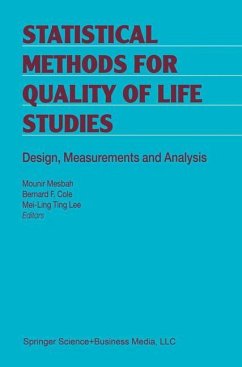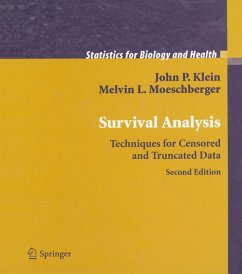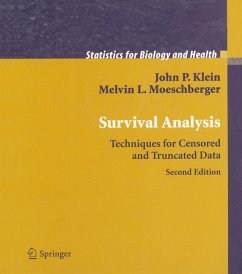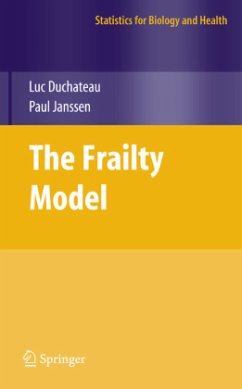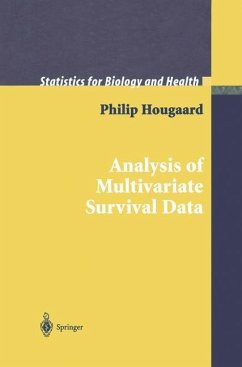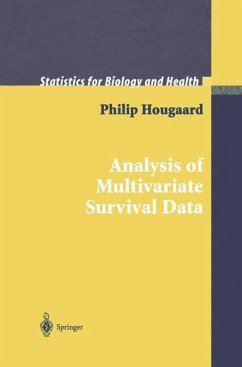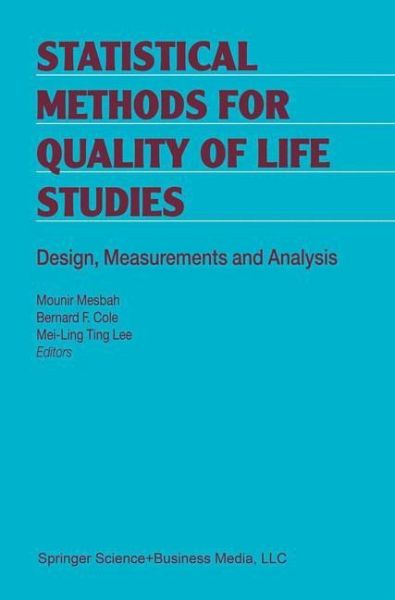
Statistical Methods for Quality of Life Studies
Design, Measurements and Analysis
Herausgegeben: Mesbah, Mounir; Cole, Bernard F.; Mei-Ling Ting Lee
Versandkostenfrei!
Versandfertig in 1-2 Wochen
115,99 €
inkl. MwSt.

PAYBACK Punkte
58 °P sammeln!
On October 16 and 17, 2000, we hosted an international workshop entitled "Statistical Design, Measurement, and Analysis of Health Related Quality of Life." The workshop was held in the beautiful city of Arradon, South Brittany, France with the main goal of fostering an interdisciplinary forum for discussion of theoretical and applied statistical issues arising in studies of health-related quality of life (HRQoL). Included were biostatisticians, psychometricians and public health professionals (e.g., physicians, sociologists, psychologists) active in the study ofHRQoL. In assembling this volume...
On October 16 and 17, 2000, we hosted an international workshop entitled "Statistical Design, Measurement, and Analysis of Health Related Quality of Life." The workshop was held in the beautiful city of Arradon, South Brittany, France with the main goal of fostering an interdisciplinary forum for discussion of theoretical and applied statistical issues arising in studies of health-related quality of life (HRQoL). Included were biostatisticians, psychometricians and public health professionals (e.g., physicians, sociologists, psychologists) active in the study ofHRQoL. In assembling this volume, we invited each conference participant to contribute a paper based on his or her presentation and the ensuing and very interesting discussions that took place in Arradon. All papers were peer-reviewed, by anonymous reviewers, and revised before final editing and acceptance. Although this process was quite time consuming, we believe that it greatly improved the volume as a whole, making this book a valuable contribution to the field ofHRQoL research. The volume presents a broad spectrum of papers presented at the Workshop, and thus illustrates the range of current research related to the theory, methods and applications of HRQoL, as well as the interdisciplinary nature ofthis work. Following an introduction written by Sir David Cox, it includes 27 articles organized into the following chapters.





